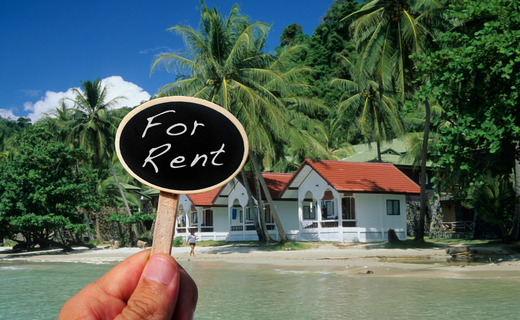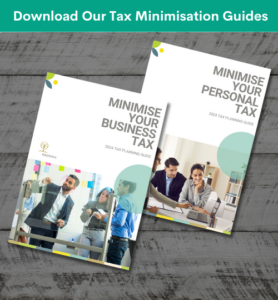Do you own a holiday house? Do you rent it out throughout the year to try and cover costs and use it as a tax deduction? If so, the Australian Taxation Office (ATO) is closely monitoring the activities of rental property owners. We encourage those that rent out their private holiday house, to be extra careful in preparing tax returns this year.
Our tax specialists have prepared the following article to answer two of the most common areas that people get wrong or ask about include:
– expenses relating to rental of private holiday homes and
– travel expenses for rental properties.
Let’s start with holiday homes as they are number one on our list!
What can I claim when I rent my private holiday house during the year?
Many Australians either have timeshare accommodation or a holiday home that they like to rent whilst they are not using it. This helps to cover the running costs, bring in some additional income and make it tax deductible.
However, if you use your holiday home privately as well as to produce rental income, it’s essential to note that:
- You cannot claim a deduction for any expenses incurred if the property was being used by you or not genuinely available for rent. This includes when it was used by you, your relatives, or your friends for private purposes or less than comparable market rent is charged.
In some circumstances, it may be straightforward to decide which expenditure is private but other expenses may be a little trickier.
For example, council rates paid for a full year could be apportioned according to the proportion of the year that:
- the property was rented out, and
- was genuinely available for rent during the year.
That takes us to the question – What’s genuinely available for rent?
Well, that means, when you have it genuinely listed online and advertised as available for rent. This means that you need to be:
- advertising the property in a way that provides broad exposure to potential tenants, and
- considering when tenants are reasonably likely to rent it. ie during school holidays, weekends, etc. and not having unreasonable restrictions or requesting excessive rent.
What holiday property expenses are fully tax deductible?
Expenses that relate solely to the renting of your property are fully deductible and you would not apportion them based on the time the property was rented out. Such costs include:
- real estate agents’ commissions,
- costs of advertising for tenants,
- phone calls you make to a tradesperson to fix damage caused by a tenant,
- the cost of removing rubbish left by tenants.
How to calculate the proportion of expenses based on when the property is rented or genuinely available for rent?
The method to calculate the deductible amount of expenses based on rental period is: Rental expense × portion of year = deductible amount.
If you have council rates you can only claim the proportion of the expenses that the property is genuinely available for rent (or rented).
So, if your council rates are $1,000 per year and your property is rented for 90 days of the year, the calculation would be:
$1,000 X 90/365 = $246.57
The same would relate to other expenses such as insurance, utility bills etc.
The next common question our advisers are asked relates to travel expenses for rental properties. Gone are the days when you could claim travel expenses whilst holding interstate residential property, especially whilst having a holiday yourself. The ATO has cracked down on these types of deductions.
Can I claim travel expenses associated with an investment property? In most circumstances, it’s a hard NO!
Travel expenses relating to residential rental property are generally not deductible for most. The only way an individual can claim travel expenses relating to a rental property is if:
- you are an excluded entity, (such as a corporate tax entity, a superannuation plan that is not an SMSF, a public unit trust, a managed investment trust, or a unit trust or a partnership, if each of its members are entities of a type listed above at that time during the income year).
- you are using the property in carrying on a business (including a business of letting rental properties ie you are the property agent), or
- the property is commercial, not a residential rental property.
Travel expenses include the costs of travel to inspect, maintain or collect rent for the property.
If you are entitled to claim a deduction for a travel expense relating to your rental property, claim as follows:
- You are allowed a full deduction where the sole purpose of the trip relates to the rental property. However, in other circumstances, you may not be able to claim a deduction, or you may be entitled to only a partial deduction.
- If you fly to inspect your rental property, stay overnight, and return home on the following day, all of the airfare and accommodation expenses would generally be allowed as a deduction provided the sole purpose of your trip was to inspect your rental property.
How can Morrows Help?
Our Morrows Tax Advisers have detailed knowledge of the tax laws relating to rental properties and are here to help. However, at the end of the day, the ATO has clearly stated that the responsibility of record keeping, to substantiate the treatment and reporting, is on the individual property investor.
So please, feel free to reach out if you need assistance or are unsure of what you are entitled to claim and what income needs to be reported.
Want to learn to minimise your 2024 Tax Bill?
Our advisors have prepared two 2024 Tax Minimisation guides. These guides outline the various strategies we can consider to help reduce your personal or business tax bill this financial year. Fill in your details below, to gain access to these guides for free.






